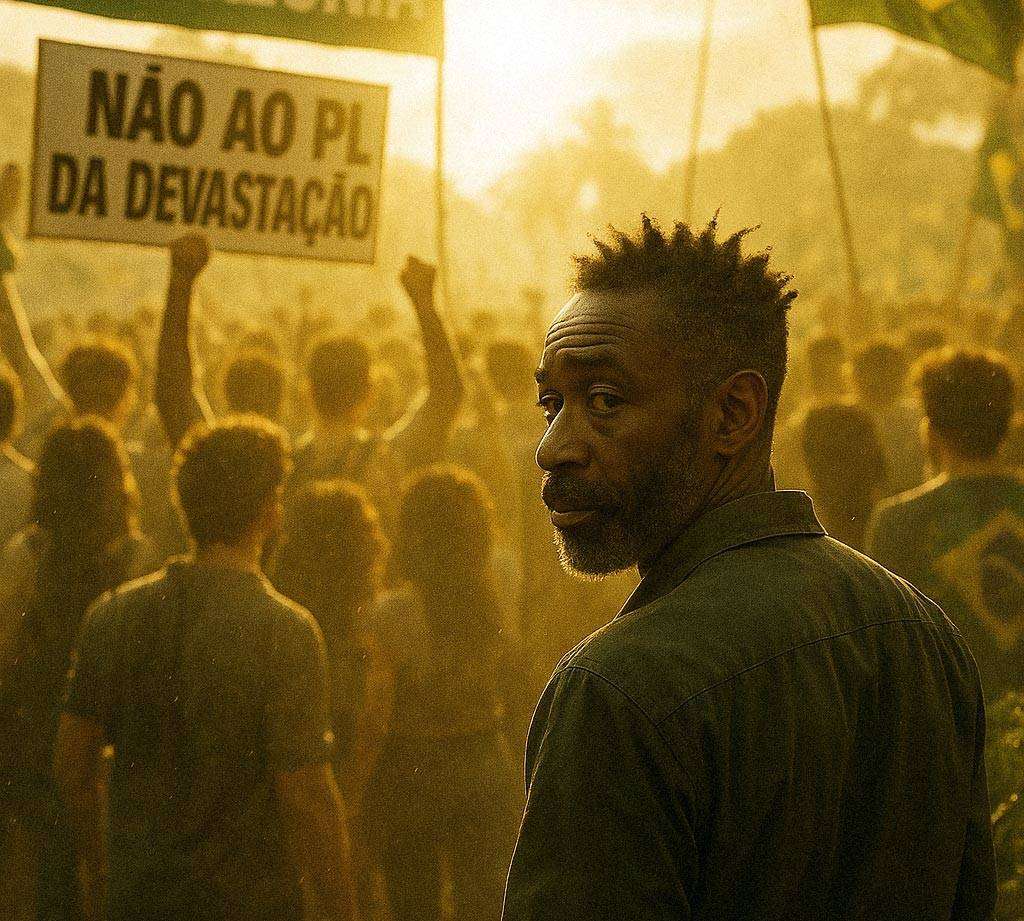A Vote that Endangers Brazil’s Ecological Future
The adoption of the “Devastation Bill” by the Brazilian Senate marks a dramatic turning point for environmental protection in the country. This law, approved by 54 votes to 13, aims to simplify and speed up licensing procedures for agricultural, mining, energy, and infrastructure projects, drastically reducing environmental requirements.
Environmental defenders denounce this text as a step back of several decades. According to them, it sacrifices biodiversity preservation, local population protection, and ecosystem integrity on the altar of short-term economic growth.
The bill allows, among other things, the issuance of licenses by simple self-declaration of project holders, without serious environmental impact studies. This paves the way for high-risk initiatives for forests, water resources, and vulnerable communities, while bypassing prevention and compensation mechanisms established over the years.
This legislation still has to be voted on by the lower house, where it should pass without difficulty given the weight of agro-industrial lobbies. A final adoption would mean a planned dismantling of Brazilian environmental policy.
An Opaque Process Under Influence
The path of this law within the Brazilian Congress illustrates the growing power of pressure groups from agro-industry and the extractive sector. These economic actors have considerable power, which is exercised at the expense of the general interest and the country’s respect for international climate commitments.
Parliamentary debates were marked by a lack of transparency and stakeholder consultation, particularly civil society organizations, indigenous communities, and scientists. The amendments introduced by the Senate mainly aim to speed up processes for projects deemed strategic, disregarding risks to the environment and society.
The timing of this adoption also causes outrage, as Brazil prepares to host COP30, a crucial international summit for the climate. The signal sent to the international community is disastrous, questioning the country’s credibility as a leader in the ecological transition.
Immediate Consequences for the Forest and Indigenous Peoples
The Socio-Environmental Institute (ISA) has quantified the extent of the threats posed by the law to ecosystems and populations. More than 3,000 protected areas, including indigenous lands and quilombola territories (Afro-descendant communities), are directly threatened.
In total, 18 million hectares of forest could be handed over to deforestation, mining, or uncontrolled infrastructure projects. Indigenous peoples, who safeguard nearly a third of the Amazon rainforest, would see their rights violated, exposing their territories to invasion, pollution, and violence.
The disappearance of environmental safeguards would also exacerbate land conflicts, already numerous in these regions. The protection of vital resources such as water, soil, and biodiversity would be sacrificed for private interests, threatening the country’s food security and social stability.
A Historic Backslide in the Face of the Climate Emergency
Climate defenders describe this text as a “fatal blow” to Brazil’s commitments to fight climate change. Natalie Unterstell, president of the Talanoa Institute, compares this reform to removing the brakes from a vehicle at full speed.
Brazil has committed to eradicating deforestation by 2030 and achieving carbon neutrality by 2050. However, the implementation of this law makes these goals unattainable, by authorizing a multitude of destructive projects without serious evaluation of their impacts.
The paradox is all the greater as the Lula government recently celebrated a 32% decrease in deforestation in 2023, while expressing a desire to boost the economy through increased exploitation of natural resources. This contradiction undermines the confidence of international partners and the Brazilian climate movement.
The Flaws of the “Development” Model Promoted by the Law
Supporters of the law justify this backslide by the need to simplify and accelerate investments, claiming that current procedures are too burdensome and slow growth. But this argument masks a more complex reality.
The dismantling of environmental protections only benefits a minority of economic actors, at the expense of the majority of the population who suffer the consequences of ecosystem degradation: floods, droughts, loss of biodiversity, diseases related to pollution.
The facilitation of new oil projects, particularly at the mouth of the Amazon, illustrates the blindness of a strategy focused on short-term extraction. It reinforces dependence on polluting energy models when the world must imperatively turn to sustainable alternatives.
Threats to Democracy and Social Justice
The “Devastation Bill” does not just weaken nature: it also undermines democracy and fundamental rights. Mechanisms for citizen participation and consultation of affected communities are emptied of their substance.
Indigenous and traditional populations, recognized by the Brazilian Constitution as key actors in environmental protection, see their rights ignored or bypassed. The risks of expropriation, violence, and criminalization of their leaders are increasing.
This backslide is part of a global trend towards restricting democratic space and criminalizing environmental defense. Brazil’s recent history has already shown the human and ecological cost of such policies.
Citizen and International Mobilization, the Last Line of Defense
Faced with this offensive, social movements, NGOs, and citizen collectives are calling for massive mobilization. They demand the text’s rejection by the Chamber of Deputies, the reaffirmation of Brazil’s climate commitments, and the protection of environmental defenders.
International pressure, especially ahead of COP30, can play a crucial role. Brazil’s trading partners, financial institutions, and global civil society actors have a responsibility to make their voices heard against this backslide.
Brazilian citizens are also invited to mobilize, to challenge their representatives, to support awareness campaigns, and to defend the right to a healthy environment for future generations.
The Future of Brazil and the Planet is at Stake Now
The battle against the “Devastation Bill” goes beyond the borders of Brazil. It symbolizes the crucial choice between a destructive development model and the construction of a sustainable future, based on social justice, biodiversity preservation, and democratic participation.
Climate, ecological, and social issues are intimately linked. Giving up environmental protection achievements would be a defeat for all those who fight for life, dignity, and the balance of the planet.
It is up to everyone to mobilize, in solidarity with the peoples of the Amazon and all those who resist destruction. The survival of the world’s largest tropical forest, and therefore of humanity, depends on our ability to say no to devastation.
To Go Further: Explanatory Video
To better understand the stakes of the “Devastation Bill” and its consequences for the Amazon and the climate, watch this in-depth report (in Portuguese, subtitles available) offered by GloboNews:
[Vídeo: Entenda o projeto de lei que pode ameaçar a proteção ambiental no Brasil – GloboNews](https://www.youtube.com/watch?v=6Tj1yG7Wc1c)
Or, for an analysis in English, discover this video from The Guardian on the subject:
[“Brazil’s ‘Devastation Bill’: What it means for the Amazon and climate” – The Guardian](https://www.youtube.com/watch?v=sZbK3rF3I7o)



